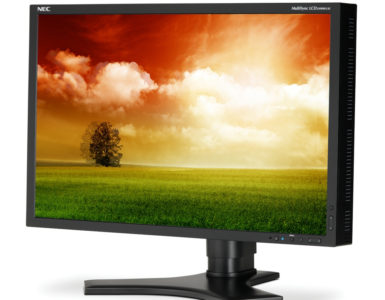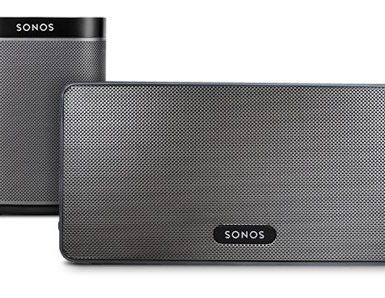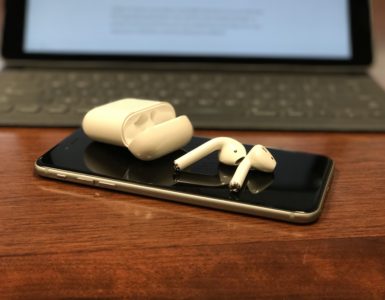I’ve been the proud owner of a Kindle — Amazon.com’s new electronic book reader — since February 4th. I’ve deliberately put off reviewing it now for almost two months.
Why? Mostly because the web is bulging with Kindle reviews written by people who have never owned or touched a Kindle (a bit like reviewing a restaurant without ever tasting the food) and people who have owned their Kindle for twenty-four hours or less (a bit like reviewing War and Peace after speed-reading the Cliff’s Notes).
This review of the Kindle is different, then, because, unlike so many others, it is not based on ignorance or first impressions. Instead, it is based on almost two months of daily use — reading while walking to work, flying cross-country, lounging by the pool, lying in bed, sitting in the pews at church, and relaxing on the couch on lazy Sunday afternoons.
Now that I have one, I can’t imagine not having it. If I found myself on a Fox Network game show called “Your Kidney … or Your Kindle?” I would have to spend several hours debating which I’d give up. (I have two kidneys, you know.)
The scoop: if you read for the sheer joy of reading, you need to quit reading this and order a Kindle, right now, today.
Born with a Book in My Hand
I’ve always loved books. Mother taught me to read when I was just two years old. By the time I was six, I was reading on a seventh-grade level. In childhood photos, books are rarely more than an arm’s length away: scattered on a table, piled around my chair, lined up neatly on my bedroom shelves (grouped alphabetically by author). In other words: yes, I was a nerd.
For the first three decades of my life, I was a fast and voracious reader — so fast, in fact, I’ve been interrupted more than once by total strangers who doubted I was doing anything more than flipping pages for show. Thanks to my ability to process text at super-human speeds, I could burn my way through four or five thick books a week without neglecting my duties as the president of a local science-fiction and fantasy fan club. (Okay, okay … I was a total nerd.)
Less Time for Reading
In my early thirties, though, my pleasure reading tapered off. I still spent time reading, but the titles were less likely to be The Sword of Shannarah and more likely to be Getting Things Done or The War of Art. Even as I played at writing novels, I stopped reading them.
And then, over the last five years or so, something even stranger happened. I was still in love with books. I was still buying them. But I stopped reading them. A stack of unread books appeared on my desk and my nightstand. Now and again, feeling guilty, I would carry one around and read a chapter or two … but then duty would call, and the book would be abandoned.
As a general rule, if I could not read something online … I didn’t read it at all.
Coming of the Kindle
When Amazon.com launched the Kindle, I dismissed it as just another electronic book reader — something like the Sony Reader or the Cybook. I took the early, extremely negative reviews by bloggers, commenters, and high-tech gurus to heart, and I pooh-poohed the device for its use of copy protection and its close ties to Amazon.com.
Soon, though, people I trusted, including my brother, began talking about their Kindle experience. Without exception, everyone I knew that actually owned a Kindle loved it. They raved about ease of use and the magic of being able to summon books (and samples of books) on a whim via the wireless connection. My brother claimed that, as he read, the Kindle became transparent, removing all barriers between him and the words on the page.
Soon, I found myself coveting my brother’s Kindle. And, so — because there’s a commandment somewhere about not coveting thy brother’s ox, ass, or Kindle (or something like that) — I decided to get right with God and order a Kindle of my very own.
I ordered my Kindle on January 4th. At the time, Kindle supply had outstripped Kindle demand, and Amazon wouldn’t even speculate about a delivery date for my bouncing baby ebook reader. Finally, thirty days later, the Kindle arrived — much to the relief of our building’s concierge, who had grown weary of me calling twice an hour to ask, “Do you have a package for me yet?”
I opened the box. I opened the Kindle. I plugged it in. I turned it on.
Seconds later, I was reading a book.
You know how a dog will growl and bare his teeth when you try to snatch away his bone? That was me, that first night, every time Clyde tried to touch my Kindle.
Lots to Love
The Kindle’s biggest impact on my life so far? I’m reading for pleasure again.
Remember how my reading had declined over the years? In the month I’ve owned a Kindle, I’ve read more books from cover to cover than I had finished in the past several months … combined. In February, I consumed The Book of General Ignorance, The Year of Living Biblically, Down and Out in the Magic Kingdom, 1,000 Places to See Before You Die, and Altered Carbon. I’ll finish Pillars of the Earth today.
But here’s the real marvel: most of the hours spent reading these books has been lifted from “dead spots” in my schedule. The Kindle makes it easy for me to read while walking to and from work. The Kindle makes it easy for me to read during lunch and during breaks. The Kindle makes it easy for me to carry my books with me everywhere and anywhere … and so, without giving anything else up, I suddenly have lots of time to read.
Easy on the Eyes
When I read a standard book (or computer screen) for hours at a time, I get a woozy, unfocused feeling — an unpleasant mixture of fatigue and eye strain. Imagine my surprise, then, when I was able to read for four hours straight on a flight to California … without feeling any eye strain or fatigue at all.
Why? Two reasons. First, the Kindle lets me resize the text of my books (a fact my forty-year-old eyeballs appreciate). Second, the screen isn’t like a computer screen or backlit LCD; instead, the e-ink screen looks like paper. It loves bright light, so it doesn’t wash out in sunshine. There are no issues at all with glare or reflections.
When reading on a Kindle, I don’t get tired … because the physical act of reading is absolutely and totally effortless. The result? I can read and read and read and read, without feeling any of the usual physical repercussions of doing so.
Comfortable, Flexible Reading
The Kindle was clearly designed to be handled and used while wrapped snugly in the provided leather cover. The cover does more than protect the Kindle’s screen — it gives the Kindle the familiar heft and feel of a book, and it makes it possible to hand the device without inadvertently pressing the Next Page or Previous Page buttons.
When walking to and from work, I find that I can easily read while holding the Kindle in one hand. This would be nearly impossible with a conventional book, as the wind (or even the strong breeze from Peachtree Street traffic) would constantly be turning pages or shifting the book in my hand. When folding laundry or getting dressed, I can place the Kindle on a flat surface and — by pausing occasionally to jab the Next Page button — keep reading. Don’t try this with a conventional book!
The Perfect (Linear) Book Reader
So: in my humble opinion, the Kindle is the perfect book reader … but it is not, however, the perfect reader for *every book*.
When reading a book that’s made to be read from cover to cover, the Kindle can’t be beat. That said: I don’t enjoy using my Kindle with reference books. Unless I’m missing something (and I could be), I can’t find an easy way to access a specific portion of a reference book.
Take the Bible, for example. Most Kindle Bibles (like my NIV) have an alphabetical table of contents keyed to the names of the books. If you’re lucky, the book titles will be keyed to a hyperlinked list of chapter numbers — but this isn’t always the case.
The search feature isn’t much help, either; searching for “Acts 2:38” gets me nothing at all, because the phrase “Acts 2:38” doesn’t appear in the text itself. Searching “Acts 2” gets me one reference in my NIV — an entry in the lexicon (“grain offering”) that says, “an offering presented as an act of worship (Leviticus 2).”
So: in Sunday school, by the time I get to the verse under discussion, the discussion has, generally, moved on. This same problem plagues books like 1000 Places to See in America Before You Die.
Let’s say I want to see what the book has to say about Mississippi. The table of contents for this book has hyperlinks … but they only go to major sections, not to the minor headings within those sections, so I’m forced to go to a major section and slowly page through to the entry I want to read.
Once again, the search feature is not helpful. Mississippi gets mentioned several times, in several contexts (including unrelated entries that reference “the Mississippi River”). I get dozens of results … but no real help finding what I need to know.
So: I don’t recommend the Kindle for those who need instant, “random access” to a specific page in a reference book.
Ignore the Whiners
The Kindle is very, very good at what it sets out to be: a device for reading electronic books from cover to cover.
This tends to be overlooked by a large number of people who just don’t seem to understand that the Kindle was, after all, designed to be a book. These are the folks who complain that the Kindle has no backlight. (Do their paper books have backlights?) These are the folks who condemn the Kindle because its e-ink screen does not allow them to watch full-motion, full-color movies. (Do they watch movies on regular books?)
Many of these whiners — particularly those who are posting one-star reviews at Amazon.com — have never even touched a Kindle. They give the Kindle a bad review because they don’t like Amazon.com’s rights management agreement. (While I think DRM is a waste of the publisher’s time and money, let’s face it — without those agreements, there would be precious few books to read on the Kindle!) They give the Kindle a bad review because Amazon.com can’t keep ’em in stock. (If you don’t like the wait, don’t be an early adopter.) They give the Kindle a bad review because they find paper books romantic and find the idea of an electronic book appalling. (Will the adoption of the Kindle cause all paper books to disappear overnight? I don’t think so.)
So: when shopping for your Kindle, be wary. Before taking a review to heart, consider where it comes from.
Ready to Buy?
I bought my Kindle, and all the books I’ve read on the Kindle so far, with my own money. I do not work for Amazon.com. I have not received compensation of any kind in return for this review.
If my review encourages you to buy a Kindle, please consider buying it through one of my Amazon.com links. Doing so costs you nothing … but it will generate a small associates fee for me, which goes toward the cost of keeping MadeByMark.com online.
I appreciate your time and attention! If you’ve stuck with me this far, you’re clearly someone who is passionate about the Kindle, an eager and willing reader … and, therefore, the perfect candidate for Kindle ownership!
I know your Kindle will delight you as much as mine has delighted me.





Hi Mark, I completely agree about the Kindle. I’ve had one for four months now. (I ordered mine a few days after it became available and only had to wait a few weeks.) I too couldn’t imagine what life would be like without it.
One benefit that I didn’t foresee was the vast number of out-of-copyright classics that are available on the internet free in Kindle-ready format for download from sites like http://manybooks.net and http://www.mobileread.com/forums/ebooks.php. (For manybooks, choose the Kindle format when downloading. Mobileread.com books are already in Kindle-readable .prc format.)
Another good thing to know is that while pdf files can be e-mailed for conversion to Amazon, you can also download the Mobipocket Creator software for free from http://www.mobipocket.com/EN/DownloadSoft/ProductDetailsCreator.asp (choose Professional when installing) which allows you to convert pdf files to Kindle-readable .prc files by yourself.
Lately several authors and publishers are releasing their books for a short time for free for download as pdf files as a promotion before their regular publication date, and using Mobipocket Creator you can convert these for the Kindle easily.
Sure, the Kindle costs a lot. But it’s all relative. Many people complain about its price but think nothing of buying premium cable subscriptions, iPhones, iPods, Netflix subscriptions, high-def big-screen TVs, etc. I use my Kindle every day and for me it was worth every cent.